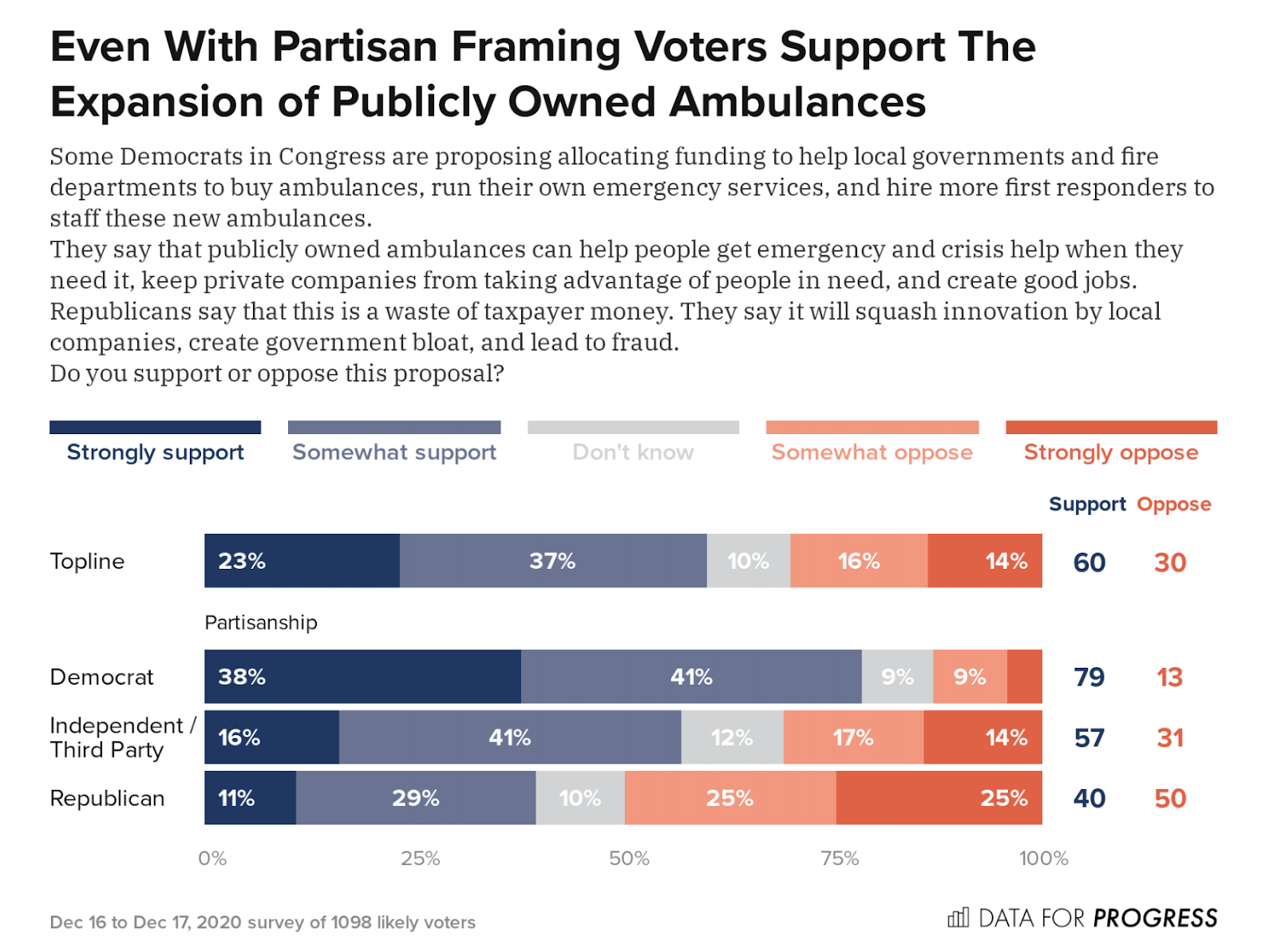|
Welcome back to the Data for Progress newsletter, your weekly update on our research, blog posts, and memos.
---
If you’re reading this, it means like you should stop answering our texts. No, really. Let us explain:
You read the DFP newsletter (tysm) which probably means you’ve undertaken higher education, are well informed about politics, and might even be a volunteer for campaigns or political causes. You’re a huge anomaly in the American electorate! And people like you, it turns out, are extremely eager to take our surveys and are skewing our results.
That’s one of several findings in our brand new Data for Progress 2020 Polling Retrospective, in which we turn our research focus inward and examine how we’re doing and how we can do better:

In a comprehensive memo, we’ve assessed how our polling of the 2020 general presidential election performed (spoiler: we’re at the top of the class — but there’s always room for improvement) and shared the fixes we’re going to make to ensure that our polling gives the progressive movement the best, most accurate and precise data possible.
We found three main areas of improvement with regard to our polling sample: we have too many liberal activists (lovely people like yourself!) taking our surveys, we don’t have enough conservatives taking our surveys, and we need to account for the fact that a person’s zip code has as much if not more of an impact on their voting behavior as their educational attainment. What are we doing about it? We’re creating a new zip code weighting scheme, downweighting responses from the liberal activist types skewing our sample, using language that popular conservatives use in order to entice right-leaning voters to engage with our surveys, and more.
For a summary of our findings, check out this New York Times article on our 2020 Polling Retrospective. We’re proud to share our analysis of how we did and ways we can do better with the world, in the spirit of progressive innovation and power building through open and accessible knowledge.
Here are some other highlights from DFP over the past week:
How do we make healthcare better? With new Community Health Centers and public ambulances.
The progressive movement rightfully spends a great deal of time talking about the need for a single-payer healthcare system, but there’s more to healthcare than just insurance: we also need plans for how to improve the quality of care itself. With 50 million of Americans lacking access to primary care, we call for building Federally Qualified Health Centers (FQHCs) in every primary care shortage area and hiring more than 50,000 clinicians across the country. Our polling finds a majority of voters support expanding FQHCs.

With rural communities across the U.S. facing massive firefighter and paramedic shortages, we also laid out a platform for public ambulances. Our polling finds that even after hearing partisan framing, voters support federal funding to help local governments buy ambulances and hire first responders by a 30-point margin.

AAPI Americans are enormously encumbered by the fear of facing hate crimes, and it’s time for the government to step in
Data for Progress polling analyst Evangel Penumaka is out this week with the first two parts of a three-part series on Asian-American attitudes towards the rise in hate crimes and racial violence directed at them. In her first piece, Evangel finds that Asian Americans are enormously afraid of being targeted by hate crimes, to the point where that fear supersedes the worries over the pandemic that all groups are facing.

Evangel’s second piece out today tackles the question of what voters, Asian and otherwise, want the government to do about this rise in racial violence. She finds that voters of color across the board feel very strongly that the government should be doing more to combat racially motivated hate crimes. Additionally, she finds that minority groups, and Black voters in particular, view racially motivated extremists as posing a higher domestic terrorism threat than Antifa.

How do we make the $15 minimum wage sound more appealing to voters? By taking it slow
A new Data for Progress study finds that Democrats can increase support for the $15 minimum wage simply by changing their language. In a recent poll test, we split our sample, with half of our respondents being asked whether they support raising the minimum wage to $9.50 an hour and increasing it by $1.50 each year (similar to the language in the Florida ballot referendum), and the other half being asked whether they support raising the minimum wage to $15 by 2025. Although both of these represent the same policy, the first framing, by explicitly highlighting the incremental increase in wages, makes the $15 minimum wage more popular. The Raise the Wage Act enjoys a 37-point margin of support with a “$9.50 + $1.50” framing, compared with a 23-point margin of support with a “$15 by 2025” framing

The “For The People” Act Is Overwhelmingly Popular
This week, Data for Progress released new polling with Vox showing that H.R. 1, the For The People Act, is overwhelmingly popular. Voters support the bill by a 45-point margin — including a majority of Democrats, Independents, and Republicans. One standout takeaway? Voters want to end gerrymandering. With the GOP preparing to gerrymander district lines across the nation, we find that redistricting reforms are extremely popular. A 57-point margin of voters want to require all states to use non-partisan commissions to draw congressional districts.
|